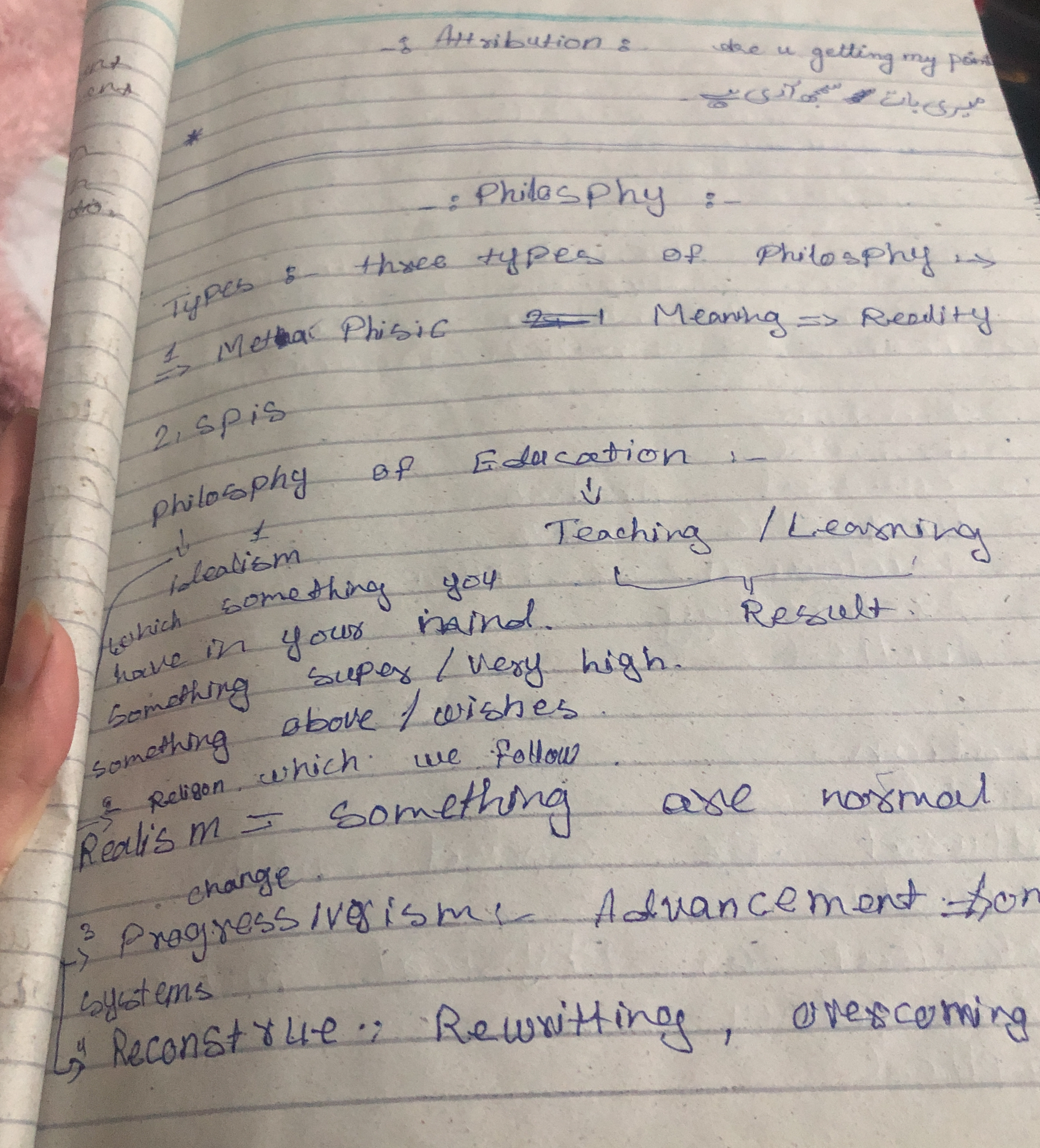What are the types of philosophy and their meanings in relation to education?

Understand the Problem
The question primarily covers types of philosophy, especially in the context of education. It seems to outline various philosophical approaches including metaphysics, idealism, realism, progressivism, and reconstructionism, along with their implications for teaching and learning.
Answer
Perennialism, Essentialism, Progressivism, Reconstructionism.
The types of educational philosophy include Perennialism, Essentialism, Progressivism, and Reconstructionism. Perennialism focuses on timeless ideas, Essentialism on core skills, Progressivism on experiential learning, and Reconstructionism on addressing social reform through education.
Answer for screen readers
The types of educational philosophy include Perennialism, Essentialism, Progressivism, and Reconstructionism. Perennialism focuses on timeless ideas, Essentialism on core skills, Progressivism on experiential learning, and Reconstructionism on addressing social reform through education.
More Information
These educational philosophies guide teaching methods and curriculum design. Perennialists emphasize classic texts, Essentialists advocate basic subjects, Progressivists encourage hands-on learning, and Reconstructionists seek education that fosters social change.
Tips
Confusing the purpose of different philosophies; e.g., mistaking Essentialism's focus on core knowledge for Progressivism's emphasis on student experiences.
Sources
- Comparison of Educational Philosophies - web.augsburg.edu
- Philosophical Foundations of Education - mtsu.pressbooks.pub
AI-generated content may contain errors. Please verify critical information